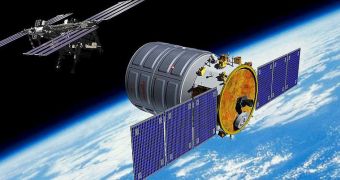Officials with the Seattle, Washington-based company Andrews Space announce that they were finally able to deliver the first in a series of four critical components to Virginia-based Orbital Sciences Corporation (OSC). The latter will use the device for its Cygnus spacecraft.
OSC is one of the companies involved with NASA in creating the next generation of private spaceships, capable of resupplying the International Space Station (ISS) under a contract with the federal government.
In order for this to become a reality, the company needs to get its Cygnus spacecraft up and running, and the four flight-qualified Cargo Module Power Units (CMPU) that Andrews needs to develop are critical to this task.
The Seattle company has just delivered the first CMPU, which marks a tremendous milestone in the development of this spacecraft design. OSC is using NASA funds to construct the space capsule.
The two companies signed their cooperation agreement in September 2010. Initially, the contract called for the delivery of three, flight-qualified CMPU, but that number could increase as OSC's cooperation with NASA expands.
At this point, Orbital Sciences operates under a $1.9 billion Commercial Resupply Services (CRS) contract, which calls for the launch of 8 ISS-bound resupply flights between 2012 and 2015.
For comparison, Hawthorne, California-based Space Exploration Technologies Corporation (SpaceX), OSC's main competitor, gets around $1.6 billion to launch 12 flights during the same interval.
During the 8 flights, the Virginia-based company will deliver about 20,000 kilograms of cargo to the orbital facility, and the CMPU will provide up to 150 Watts of 28VDC payload power to each of these flights.
“I’m extremely proud of our team. We were on the critical path from the day we signed the contract and we met our aggressive cost and schedule commitments,” Andrews Space President and CEO, Jason Andrews, explains.
“It was a pleasure working with the Orbital team on developing the CMPU and look forward to future collaborations,” he adds, quoted by Space Fellowship. His company was recently contracted for a fourth power unit. All the devices need to be delivered by June 2011.

 14 DAY TRIAL //
14 DAY TRIAL //